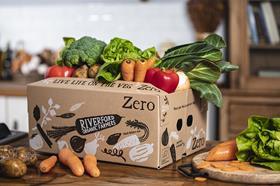
A report from the UK’s Soil Association Certification has stressed the need for “change across the board” to ensure a future free from plastic packaging pollution.
“There’s a growing awareness that the world is facing a packaging crisis,” the report states. “Urgent action is required across the board to reduce overall packaging use and to secure a future that’s free from plastic pollution. Individuals, businesses, governments, public bodies, and non-governmental organisations all need to work together to find innovative solutions.”
The report, entitled 'Sustainable Packaging Report: The case for paper', explores the advantages of certified paper and packaging and provides information on how to source it, as well as examples of packaging innovations and applications for businesses.
A Grocer survey of over 1,000 UK adults revealed that environmentally-friendly packaging remained a top priority for consumers, with sustainability concerns recording a rise during the Covid-19 pandemic.
“Sustainable packaging is becoming ever more important on shoppers’ priority lists, and is forcing brands and retailers to rethink their packaging strategies,” said Andrew Grundy, senior certification manager at Soil Association Certification.
According to consultancy McKinsey, packaging companies need to rethink packaging design to offer a good sustainability narrative, maximise hygiene and meet the needs of e-commerce and direct-to-consumer models.
In support of a paper alternative to plastic packaging, the report states: “Paper packaging can protect goods, provide product information, and be both biodegradable and easily recyclable. Forest-sourced fibre can also be used to make cellulose-based plastics and films.”
Crucially, according to the report, FSC and/or PEFC certifications are essential to “ensure the sustainability credentials and integrity of the supply chain”.
The report also highlights the efforts of UK produce supplier Riverford Organic Farmers to reduce the environmental impact of its packaging.
“Founder Guy Singh-Watson made the decision in 2018 that the company would be reducing its plastic packaging as much as possible, which builds on its ethos on packaging of remove, reduce, reuse, recycle,” the report states. “Working closely with Verpackungszentrum (VPZ), they now use packaging materials such as Packnatur cellulose tube netting. The material is made from beech wood, which is recovered from certified beech forests in Austria and neighbouring countries. Forest thinning is a standard process in the industry, and is required to provide enough light and space for surrounding trees.”
“Using forestry co-products for packaging allows for huge reductions in raw materials usage and contributes to local and regional circular economy initiatives,” said Zac Goodall, sustainability and ethics manager at Riverford.



